author - "Charles Dickens"
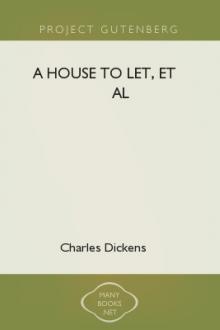
e of this same House.As I say, I went and saw for myself. The lodging was perfect.That, I was sure it would be; because Trottle is the best judge ofcomfort I know. The empty house was an eyesore; and that I was sureit would be too, for the same reason. However, setting the onething against the other, the good against the bad, the lodging verysoon got the victory over the House. My lawyer, Mr. Squares, ofCrown Office Row; Temple, drew up an agreement; which his young manjabbered over so
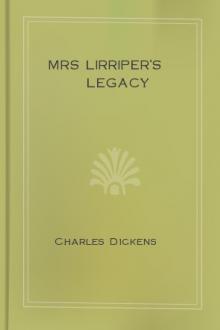
rd and dusted with his own hands every morning before varnishing his boots) I notice him as full of thought and care as full can be and frowning in a fearful manner, but indeed the Major does nothing by halves as witness his great delight in going out surveying with Jemmy when he has Jemmy to go with, carrying a chain and a measuring-tape and driving I don't know what improvements right through Westminster Abbey and fully believed in the streets to be knocking everything upside down by Act of
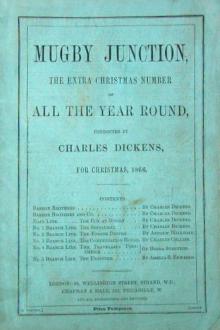
must have some name in going about, for people to pick up," heexplained to Mugby High Street, through the Inn window, "and that name atleast was real once. Whereas, Young Jackson!--Not to mention its being asadly satirical misnomer for Old Jackson."He took up his hat and walked out, just in time to see, passing along onthe opposite side of the way, a velveteen man, carrying his day's dinnerin a small bundle that might have been larger without suspicion ofgluttony, and pelting
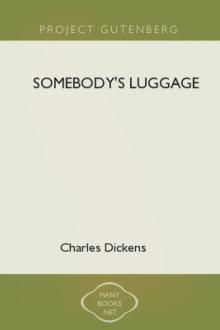
ct of Madness onthe part of a Waiter,--and took to his bed (leastwise, your motherand family's bed), with the statement that his eyes were devilledkidneys. Physicians being in vain, your father expired, afterrepeating at intervals for a day and a night, when gleams of reasonand old business fitfully illuminated his being, "Two and two isfive. And three is sixpence." Interred in the parochial departmentof the neighbouring churchyard, and accompanied to the grave by asmany Waiters of
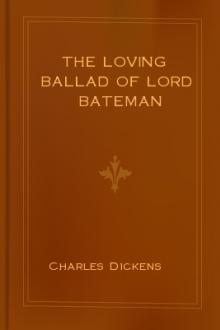
"The Loving Ballad of Lord Bateman" is a poem by Charles Dickens, first published in 1839. The poem tells the story of a wealthy lord who falls in love with a Turkish lady and sets out on a journey to find her. Along the way, Lord Bateman faces numerous challenges, including being captured by pirates and imprisoned. Despite these obstacles, he persists in his quest for his beloved, demonstrating the power of love and determination. The poem is notable for its vivid descriptions, use
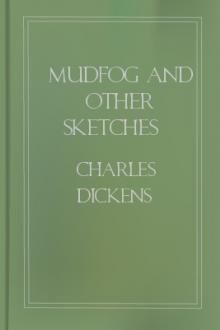
anding his dissipation, Bottle-nosed Ned was a generalfavourite; and the authorities of Mudfog, remembering his numerousservices to the population, allowed him in return to get drunk inhis own way, without the fear of stocks, fine, or imprisonment. Hehad a general licence, and he showed his sense of the compliment bymaking the most of it.We have been thus particular in describing the character andavocations of Bottle-nosed Ned, because it enables us to introducea fact politely, without hauling
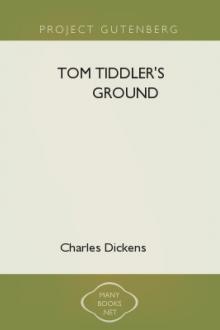
roprietor in turnips or mangold-wurzel.Mr. Traveller having finished his breakfast and paid his moderatescore, walked out to the threshold of the Peal of Bells, and, thencedirected by the pointing finger of his host, betook himself towardsthe ruined hermitage of Mr. Mopes the hermit. For, Mr. Mopes, by suffering everything about him to go to ruin, andby dressing himself in a blanket and skewer, and by steeping himselfin soot and grease and other nastiness, had acquired great renown inall that
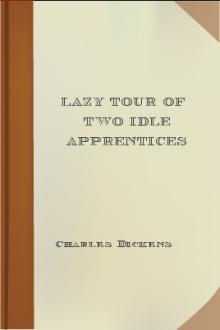
opagandism. Engravings of Mr. Hunt's country boy, before and after his pie, were on the wall, divided by a highly-coloured nautical piece, the subject of which had all her colours (and more) flying, and was making great way through a sea of a regular pattern, like a lady's collar. A benevolent, elderly gentleman of the last century, with a powdered head, kept guard, in oil and varnish, over a most perplexing piece of furniture on a table; in appearance between a driving seat and an angular

"Order!" cried a merry-faced little man, who had brought his young daughter with him to see life, and who always modestly hid his face in his beer-mug after he had thus assisted the business."John Nightingale, William Thrush, Joseph Blackbird, Cecil Robin, and Thomas Linnet!" cried Friar Bacon. "Here, sir!" and "Here, sir!" And Linnet, Robin, Blackbird, Thrush, and Nightingale, stood confessed. We, the undersigned, declare, in effect, by this written
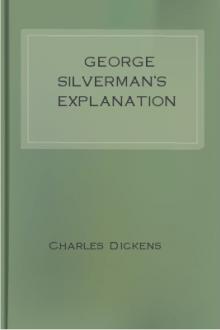
Iheard a cracked voice somewhere in the ring say, 'My name isHawkyard, Mr. Verity Hawkyard, of West Bromwich.' Then the ringsplit in one place; and a yellow-faced, peak-nosed gentleman, cladall in iron-gray to his gaiters, pressed forward with a policemanand another official of some sort. He came forward close to thevessel of smoking vinegar; from which he sprinkled himselfcarefully, and me copiously.'He had a grandfather at Birmingham, this young boy, who is justdead too,' said Mr. Hawkyard. I

e of this same House.As I say, I went and saw for myself. The lodging was perfect.That, I was sure it would be; because Trottle is the best judge ofcomfort I know. The empty house was an eyesore; and that I was sureit would be too, for the same reason. However, setting the onething against the other, the good against the bad, the lodging verysoon got the victory over the House. My lawyer, Mr. Squares, ofCrown Office Row; Temple, drew up an agreement; which his young manjabbered over so

rd and dusted with his own hands every morning before varnishing his boots) I notice him as full of thought and care as full can be and frowning in a fearful manner, but indeed the Major does nothing by halves as witness his great delight in going out surveying with Jemmy when he has Jemmy to go with, carrying a chain and a measuring-tape and driving I don't know what improvements right through Westminster Abbey and fully believed in the streets to be knocking everything upside down by Act of

must have some name in going about, for people to pick up," heexplained to Mugby High Street, through the Inn window, "and that name atleast was real once. Whereas, Young Jackson!--Not to mention its being asadly satirical misnomer for Old Jackson."He took up his hat and walked out, just in time to see, passing along onthe opposite side of the way, a velveteen man, carrying his day's dinnerin a small bundle that might have been larger without suspicion ofgluttony, and pelting

ct of Madness onthe part of a Waiter,--and took to his bed (leastwise, your motherand family's bed), with the statement that his eyes were devilledkidneys. Physicians being in vain, your father expired, afterrepeating at intervals for a day and a night, when gleams of reasonand old business fitfully illuminated his being, "Two and two isfive. And three is sixpence." Interred in the parochial departmentof the neighbouring churchyard, and accompanied to the grave by asmany Waiters of

"The Loving Ballad of Lord Bateman" is a poem by Charles Dickens, first published in 1839. The poem tells the story of a wealthy lord who falls in love with a Turkish lady and sets out on a journey to find her. Along the way, Lord Bateman faces numerous challenges, including being captured by pirates and imprisoned. Despite these obstacles, he persists in his quest for his beloved, demonstrating the power of love and determination. The poem is notable for its vivid descriptions, use

anding his dissipation, Bottle-nosed Ned was a generalfavourite; and the authorities of Mudfog, remembering his numerousservices to the population, allowed him in return to get drunk inhis own way, without the fear of stocks, fine, or imprisonment. Hehad a general licence, and he showed his sense of the compliment bymaking the most of it.We have been thus particular in describing the character andavocations of Bottle-nosed Ned, because it enables us to introducea fact politely, without hauling

roprietor in turnips or mangold-wurzel.Mr. Traveller having finished his breakfast and paid his moderatescore, walked out to the threshold of the Peal of Bells, and, thencedirected by the pointing finger of his host, betook himself towardsthe ruined hermitage of Mr. Mopes the hermit. For, Mr. Mopes, by suffering everything about him to go to ruin, andby dressing himself in a blanket and skewer, and by steeping himselfin soot and grease and other nastiness, had acquired great renown inall that

opagandism. Engravings of Mr. Hunt's country boy, before and after his pie, were on the wall, divided by a highly-coloured nautical piece, the subject of which had all her colours (and more) flying, and was making great way through a sea of a regular pattern, like a lady's collar. A benevolent, elderly gentleman of the last century, with a powdered head, kept guard, in oil and varnish, over a most perplexing piece of furniture on a table; in appearance between a driving seat and an angular

"Order!" cried a merry-faced little man, who had brought his young daughter with him to see life, and who always modestly hid his face in his beer-mug after he had thus assisted the business."John Nightingale, William Thrush, Joseph Blackbird, Cecil Robin, and Thomas Linnet!" cried Friar Bacon. "Here, sir!" and "Here, sir!" And Linnet, Robin, Blackbird, Thrush, and Nightingale, stood confessed. We, the undersigned, declare, in effect, by this written

Iheard a cracked voice somewhere in the ring say, 'My name isHawkyard, Mr. Verity Hawkyard, of West Bromwich.' Then the ringsplit in one place; and a yellow-faced, peak-nosed gentleman, cladall in iron-gray to his gaiters, pressed forward with a policemanand another official of some sort. He came forward close to thevessel of smoking vinegar; from which he sprinkled himselfcarefully, and me copiously.'He had a grandfather at Birmingham, this young boy, who is justdead too,' said Mr. Hawkyard. I